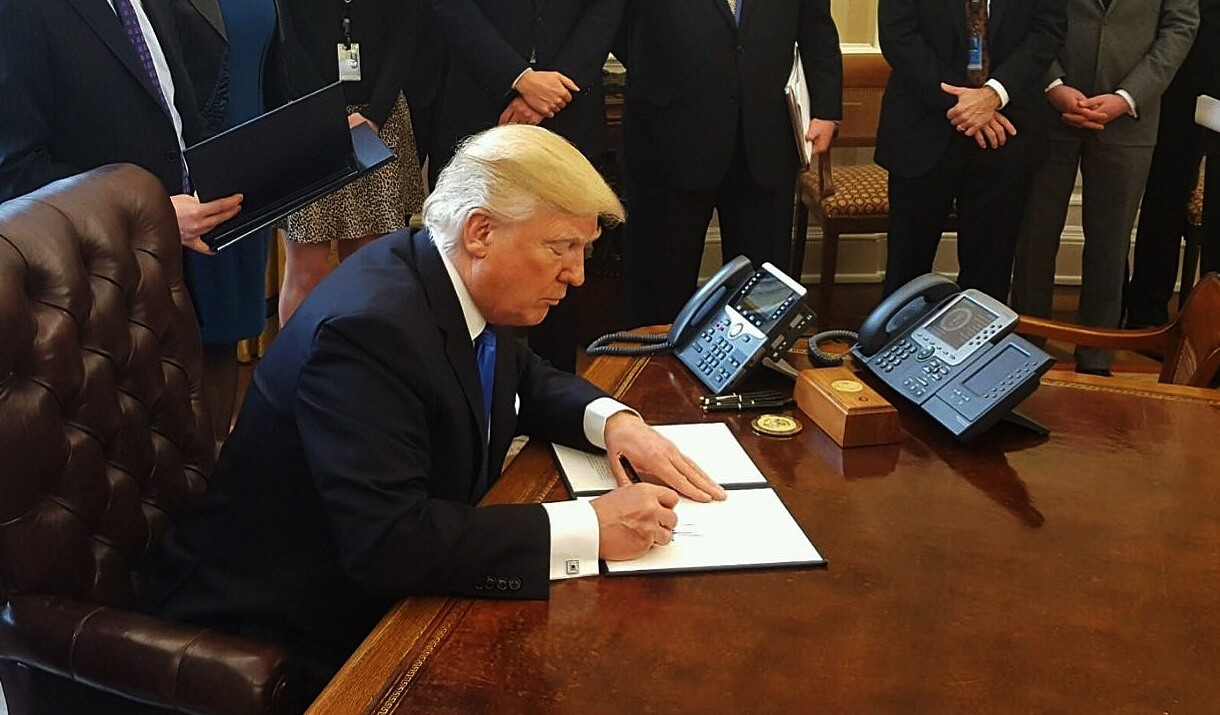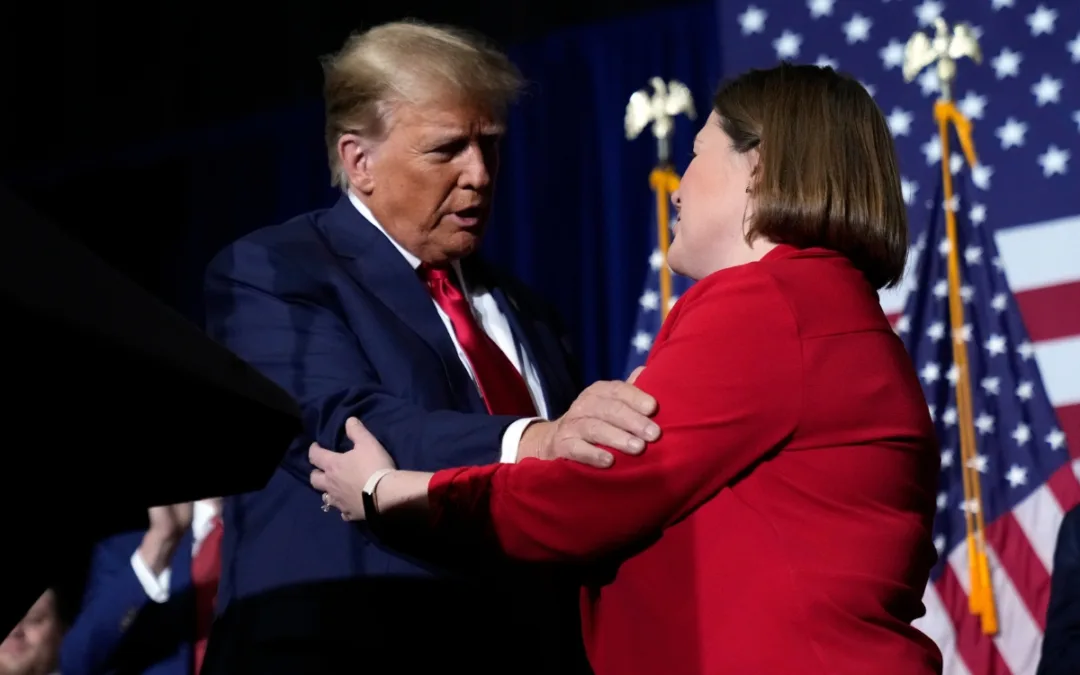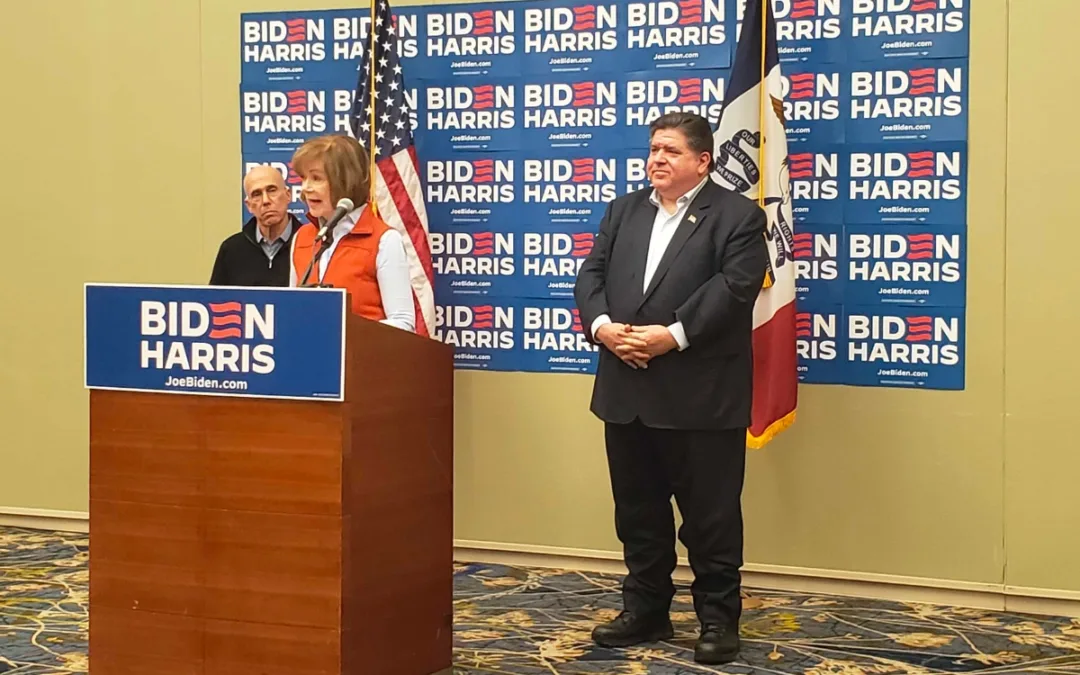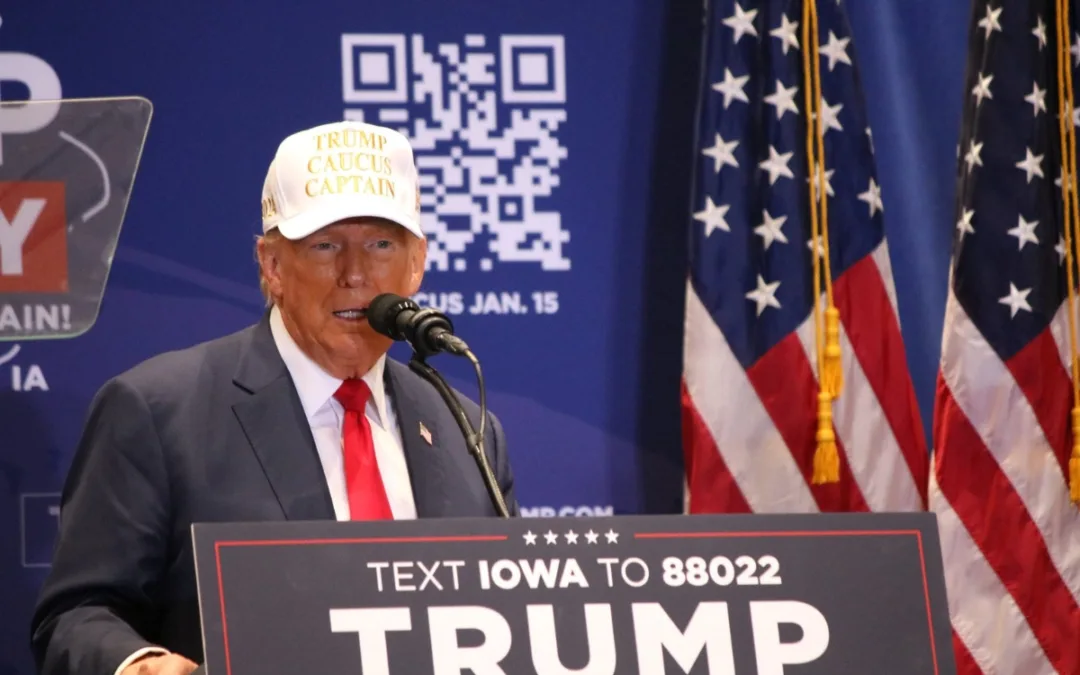
Photo via White House
One of the biggest stories out of Donald Trump’s presidency is the long process of dismantling President Barack Obama’s legacy.
Whether it’s rolling back environmental protections, packing the courts with right-wing ideologues, pulling out of hard-fought international agreements like the Paris Climate Accord and the Iran Nuclear Deal (JCPOA) or the many and laborious attempts to repeal the Affordable Care Act, Trump has been obsessed with ending anything that Obama began.
In many ways, the progress achieved with Obama proved fragile and short-lived.
Yesterday, eight pro-democracy groups sponsored a forum in Des Moines called “We the People 2020: Protecting our Democracy a Decade After Citizens United.” There, presidential candidates answered questions and talked about how they would restore democracy after Trump’s presidency.
But if Americans elect another Democratic president in 2020, will the changes last when another Republican is elected?
There are a few ways to make sure it happens, according to the candidates and people from the organizations: executive orders, the courts, Constitutional amendment, public opinion and Congressional action.
[inline-ad id=”2″]
Constitutional amendments and executive orders have been popular solutions for the candidates. All support an amendment for overturning the Citizens United decision.
While an amendment to the Constitution would be more permanent, executive orders are more of a strategy to get things done, not to make them last.
“The biggest thing we have to do is not through executive actions,” said Tiffany Muller, the president of End Citizens United. “There are a lot of things to do by executive action. But in order to have more long-lasting impact, we know we need to actually have so much of this done by legislation in Congress.”
Specifically, Muller said she meant H.R. 1, the For the People Act, the legislation that passed the House of Representatives last year and introduces various reforms to voting rights, redistricting, ethics and campaign finance that would automatically solve many issues concerning democracy if signed into law.
[inline-ad id=”3″]
Muller also said confronting the amount of money in politics should be part of the solution. To do that, she said, the country has to overturn the Citizens United decision. It could be done by either the Supreme Court reversing the decision or by a Constitutional amendment.
“In either case, we have to change the Senate makeup because we need two thirds of the House and the Senate and three quarters of the states for a constitutional amendment,” Muller said.
Barring that, another avenue for lasting change is the federal courts.
Marge Baker, the executive vice president for policy and programming at People for the American Way, said the courts must first be rebalanced to make up for the right-wing Trump appointees.
[inline-ad id=”4″]
“The point there is, if you have a court system that’s packed with ultra-conservative judges, who deliver for corporations, the wealthy and the powerful, they’re going to look at any policies enacted and try to shut them down,” Baker said.
She explained that part of the reason Obama’s policies have been dismantled is because the courts have let the Trump Administration do it. Many of the conservative jurors Trump has appointed to the federal courts have also worked to come up with convoluted legal theories to chip away at Obama-era policies.
So, she said she was happy to hear all the candidates at the forum talk about who they would model their judicial nominees after.
“Any president coming in, has to be thinking about how they’re going to reconfigure the courts as part of their agenda,” Baker said.
[inline-ad id=”5″]
For example, Sen. Elizabeth Warren said she would pursue judicial nominees like Indira Talwani, who is now a judge on the district court of Massachusetts who Warren recommended to Obama in 2014. Before, Talwani was a lawyer who specialized in labor law.
“For me, what was the key on this were people who came from different backgrounds, people who had different experiences in the legal system,” she said.
Sen. Amy Klobuchar also said, as she has many times, that she would prioritize judges who are like Justices Elena Kagan, Sonia Sotomayor and Ruth Bader Ginsburg, as well as Minnesota judge Wilhelmina “Mimi” Wright.
“I think that would reflect on the kind of judges I would put in when I’m president,” she said. “And I think one thing you should know about me is I like to get things done quickly and done right.”
[inline-ad id=”0″]
She pointed out how Obama had his hands tied with the financial crisis and couldn’t appoint judges right away, leading to some of the vacancies Trump has since filled.
Pete Buttigieg also highlighted the need to rethink the structure of the Supreme Court. For months, he’s talked about expanding the bench, rotating justices or implementing term limits. He said those would temper the effects of ideologues who get appointed to the bench.
“This is why I’ve proposed that we have structural reform, not only to make the court more liberal, my appointments will make the court more liberal, but in order to make it less politicized,” he said.
Baker said it was all good and the conversation was on the right track.
“You really can’t have democracy if you don’t have fair courts,” she said. “You’re not going to win all the time. But if you have courts stacked with narrow-minded elitists who are there for the corporations and powerful, you can be sure that when you look at a courtroom, you’re not going to get that.”
[inline-ad id=”1″]
It won’t be easy. Trump has filled almost 200 judicial vacancies and it’s unlikely he’ll leave many unfilled for another president.
Luckily, the courts are still not the only method of creating lasting change.
Over and over, candidates talk about their ability to reach across the aisle, and their ability to build a movement.
“When we talk about anti-corruption, it’s not just Democrats who get what’s broken. It’s Democrats, independents and Republicans, not the ones in Washington, don’t get me wrong, I’m talking about people all across this country,” Warren said. “This is a place we can come together, not a place where we have to be separated.”
[signup_form]
Warren was pressed the hardest at the forum on how she would withstand constitutional challenges to her proposals. She said all of her plans have a basis in the law and she emphasized that many have bipartisan support.
“Do I think the Obama Administration anticipated what Mitch McConnell and the Trump Administration was going to do? Who would have anticipated that?” she asked. “Given what they have done, what should our response be? Ultimately our goal is to restore a government that works for everyone.”
Rio Tazewell, the senior campaigns manager for People for the American Way said a path through public opinion and Congressional action is the golden ticket to permanent reform.
“First and foremost is the movement building,” he said. “What we need is a sustained, prolonged, intense, intensely organized pro-democracy movement that’s operating at the state, local and national level.”
[inline-ad id=”6″]
With a movement, people can put pressure on their members of Congress to support legislation, which is the ultimate way to affect change. Tazewell also cited H.R. 1, and he said part of the reason why it happened at all was because of a grassroots movement of people who came together and put pressure on their elected representatives.
“If we have the will of the people, then we’re able to exercise much greater influence in the halls of Congress and within in the executive branch,” he said.
by Nikoel Hytrek
Posted 1/20/20
Politics

Biden marks Earth Day by announcing $7 billion in solar grants
The Biden administration on Monday announced the recipients of its Solar For All Program, a $7 billion climate program that aims to lower energy...

6 terrifying things that could happen if the Comstock Act is used to target abortion
Does 1873 sound like a really, really long time ago? Well, that’s because it is—but if Republicans and far-right anti-abortion activists have their...
Local News

No more Kum & Go? New owner Maverik of Utah retiring famous brand
Will Kum & Go have come and gone by next year? One new report claims that's the plan by the store's new owners. The Iowa-based convenience store...

Here’s a recap of the biggest headlines Iowa celebs made In 2023
For these famous Iowans, 2023 was a year of controversy, career highlights, and full-circle moments. Here’s how 2023 went for the following Iowans:...





